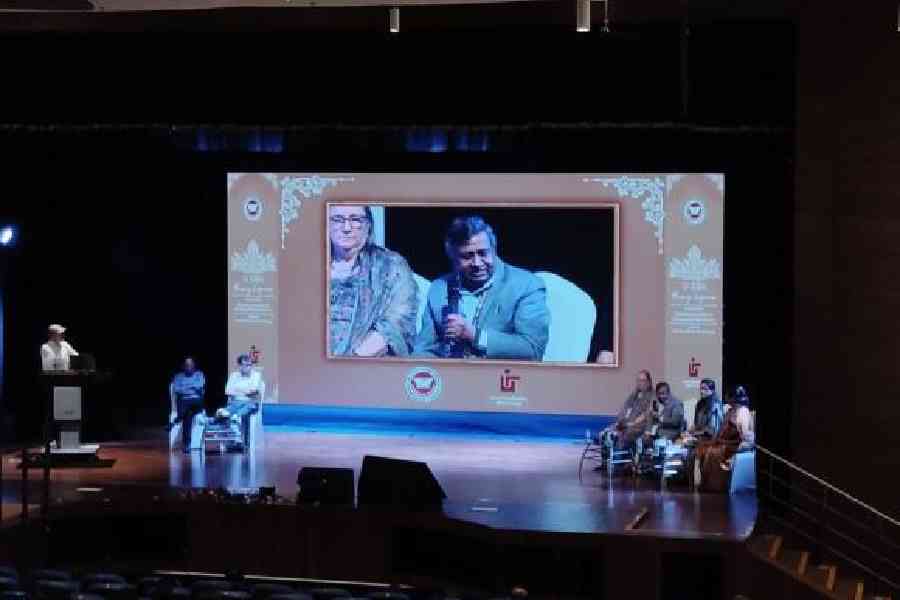Nurses need to constantly upgrade through higher academic exposure just like doctors do, medical experts said at a nursing conference on Thursday.
Nursing students and teachers from different places in and outside India participated in the inaugural edition of the Kolkata Nursing Conference, held at an Alipore auditorium.
“There is a common perception that conferences and academic exposures are reserved for doctors. We want to break that perception. Nurses do not get due credit or recognition. But they are as important as any others in the healthcare delivery system,” said Partha Sarathi Mukherjee, secretary of the Liver Foundation West Bengal, organisers of the conference.
In 2020, when Covid was at its peak, the Liver Foundation started a nursing school, Chandrakant Institute of Nursing and Health Sciences. The unit will send the two toppers from the current batch to the Indiana University School of Nursing, in Indianapolis, next spring. They will spend three months in the US for “first-hand learning”.
“The students will be considered postgraduates. They will be in the status of observation, since they don’t have the nursing licence in the US. But as invitees, they will go alongside the nurses at the hospital and look at procedures. They will not be administering medication for treatment but there will still be first-hand learning of different techniques that they might be able to bring back to Calcutta,” said Barbara deRose, director of Global Programs, Indiana University School of
Nursing.
Madhabi Das, director of nursing at Sister Nivedita University, welcomed the move. “Nurses need continuous academic enrichment. There should be regular nursing conferences on the latest research in public health,” said Das, chairperson of the organising committee of the conference.
Since the pandemic, virtual collaboration between different nursing students has gone up, said the participants from the US.
“Since the pandemic has really brought out virtual learning, it has exploded all over the globe. The students are learning from each other. They are the nurses of the future,” deRose said.
Jane von Gaudecker, associate professor at the same school in Indianapolis, said: “Technology has improved. We learn from each other. That is the major change that we have seen globally. As far as research is concerned, because technology has improved, we are having interdisciplinary collaborations from across the globe. Communication has improved.”
Manisha Ghosh, officer on special duty and ex-officio nursing superintendent, IPGMER & SSKM Hospital, said nurses must keep themselves updated of the latest technologies.
“They must have an understanding of the new technologies. They should be able to use modern equipment and keep track of the latest healthcare trends. What was new five years ago will become backdated in the next five years,” she said.
Das, who happens to be a former joint director of health services (nursing) of the state, spoke of a shortage of nurses despite many new nursing institutes having come up in the recent years.
“Ideally, there should be a nurse-patient ratio of 1:3 in general wards. Here, the ratio often exceeds 1:20, especially in night shifts,” she said.
At the inaugural session at the conference on Thursday, T. Dileep Kumar, president of the Indian Nursing Council, sought more funds for nursing education in India.
The conference had a series of sessions, focused on topics like nursing education, nursing health care, nursing research and community and public health nursing.











